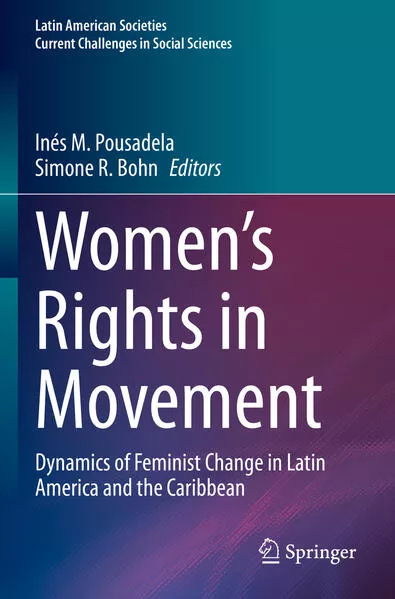
- Publikationen ca: 3
- Fragen & Antworten
Inés M. Pousadela
Simone Bohn is Associate Professor of Political Science at York University, Toronto, Canada. Her research focuses on political parties in South America, gender and politics in Brazil, and the study of political tolerance and attitudes towards corruption in Latin America. She is the co-editor of Mothers in Public and Political Life (2017) and 21st Century Feminism in Latin America and the Caribbean (forthcoming). Dr. Bohn is currently working on a SSHRC-funded research project about Brazil’s women’s policy agency. Her articles have been published in several scholarly journals, such as Politics and Government, Latin American Research Review, International Political Science Review, Journal of Latin American Politics, and Comparative Governance and Politics.
Women’s Rights in Movement
This book provides an updated comparative overview of women’s movements in Latin America and the Caribbean, filling some of the gaps left by the existing literature. It brings together case studies of nine countries – Argentina, Brazil, Chile, Colombia, Dominican Republic, Ecuador, Mexico, Nicaragua, and Peru – and includes a comparative analysis of the overall evolution of women’s rights movements across the region during the past decades.
Women’s Rights in Movement
This book provides an updated comparative overview of women’s movements in Latin America and the Caribbean, filling some of the gaps left by the existing literature. It brings together case studies of nine countries – Argentina, Brazil, Chile, Colombia, Dominican Republic, Ecuador, Mexico, Nicaragua, and Peru – and includes a comparative analysis of the overall evolution of women’s rights movements across the region during the past decades.
Women’s Rights in Movement
This book provides an updated comparative overview of women’s movements in Latin America and the Caribbean, filling some of the gaps left by the existing literature. It brings together case studies of nine countries – Argentina, Brazil, Chile, Colombia, Dominican Republic, Ecuador, Mexico, Nicaragua, and Peru – and includes a comparative analysis of the overall evolution of women’s rights movements across the region during the past decades.


